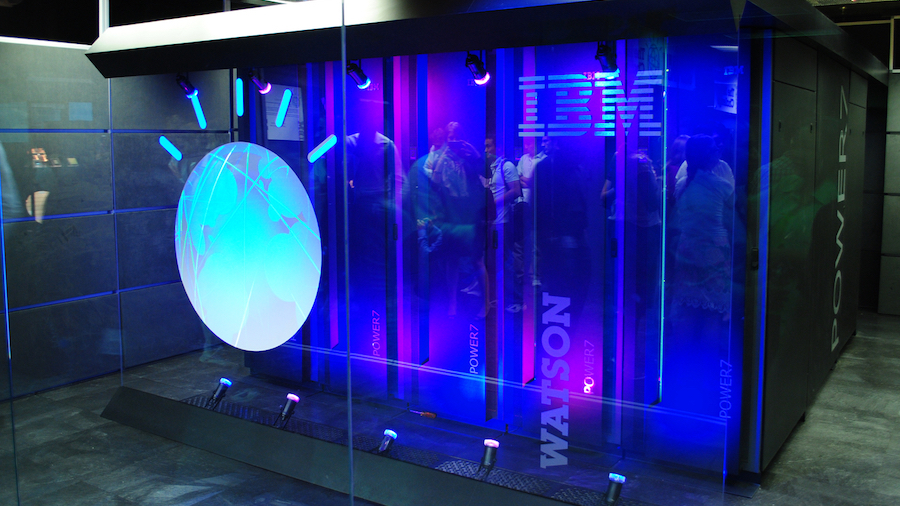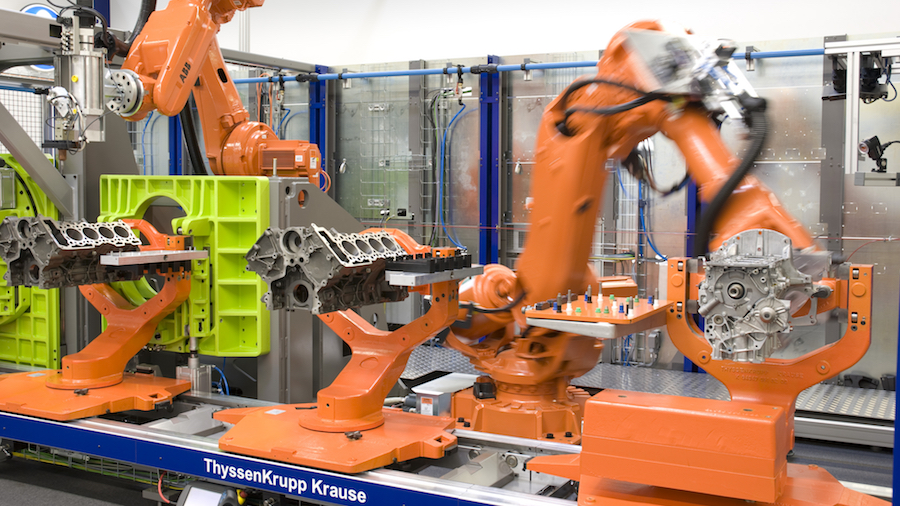AI and automation will take jobs – but how and where?
How offices, banks and call centres will be changed by chatbots and AI

Every week there's a story in a tabloid newspaper that contains the phrase 'rise of the robots'. Journalists trot out shock headlines like 'robot job invasion' and 'robots will destroy our jobs' as if this is something society should, and can, prevent.
Does a perfect storm of cloud, AI, mobile, IoT, chatbots and machine learning being applied to business processes mean jobs are really at risk from automation? Or is this merely the latest chapter in a story about a skills shortage in an increasingly information-based society?
From shop floor to office
Robotics already dominate the shop floors of car plants and industrial facilities; this next wave of automation is about the office. "It differs from the previous purely mechanical and industrial wave in that it is powered by data and our ability to analyse with more powerful techniques," says Ian Hughes, Analyst, Internet of Things, 451 Research, who thinks that now the dangerous jobs have been given to robots, it's time to automate mundane tasks. "Whether it’s software or hardware, these are advanced tools best suited to assist us and let us move on to more interesting things."
So it's not really about unskilled labour at all. "A better starting point is to view AI as a way of dealing with predictable, non-personal work, where lots of data exists," says Matt Jones, Analytics Strategist at Tessella, explaining that this helps us understand its potential impact not only in manufacturing, but also on legal research, drilling for commodities, and even diagnosing diseases. "AI will affect different industries in very different ways," he observes.

Who will be impacted?
“The reality of AI’s impact is somewhat different to what we have been reading about in the papers," says Harrick Vin, VP and Chief Scientist at Tata Consultancy Service, whose Global Trends Study of 835 decision makers in 13 different industry sectors found that 84% view AI as ‘essential’. And that’s particularly the case in Europe and North America, where the average spend has hit around $80 million (around £65 million, AU$105 million) per region over recent years.
"The opportunities and challenges this technology presents are still not yet fully understood, but what is clear is the impact is going to be big," says Vin. "From Apple investing in face recognition through Emotient, to Shell, the oil and gas giant, launching an online virtual assistant to respond to customer enquiries, there are already major investments – and belief – in AI."
However, this isn't just from IT departments. "Despite 68% of companies using AI for IT functions, by 2020, 70% believe AI’s greatest impact will be in admin, back office, sales, marketing and finance."
Sign up to the TechRadar Pro newsletter to get all the top news, opinion, features and guidance your business needs to succeed!
Which industries will change most?
Some jobs could disappear almost completely. "Jobs in call centres, routine machine operation and stock taking are probably not long for this world," says Jones. "Industries like manufacturing will indeed be heavily affected at the lower skilled end."
However, he thinks that industries already accustomed to automation will actually be better prepared for the effects of AI. "Perhaps a bigger shock will come to industries that rely heavily on manually collecting, processing and interpreting data, tasks that have long relied on highly paid, highly skilled people," he says, which means the end of report writing jobs in legal, accountancy, finance, insurance and management consultancy industries.
Does that means horrendous job losses in white collar businesses? Not necessarily – this is about eliminating the lower value work that clients hate paying for, so staff can concentrate on higher value tasks. "Whether this means companies deliver more value for less, or employ fewer people, will depend on how they approach this new world," says Jones.

Which industries will change least?
Not only will jobs that rely solely on human interaction not change, but there will doubtless be a renaissance if automation is pushed too far.
"Highly emotive experiences – training, counselling, medical advice, restaurant service – will probably never be delivered predominantly by AI, even if they become technically possible," says Jones. "Equally, situations requiring human judgement or empathy, from managing a team, to deciding a court case, to operating a bulldozer, will need humans for the foreseeable future."
Jamie is a freelance tech, travel and space journalist based in the UK. He’s been writing regularly for Techradar since it was launched in 2008 and also writes regularly for Forbes, The Telegraph, the South China Morning Post, Sky & Telescope and the Sky At Night magazine as well as other Future titles T3, Digital Camera World, All About Space and Space.com. He also edits two of his own websites, TravGear.com and WhenIsTheNextEclipse.com that reflect his obsession with travel gear and solar eclipse travel. He is the author of A Stargazing Program For Beginners (Springer, 2015),
